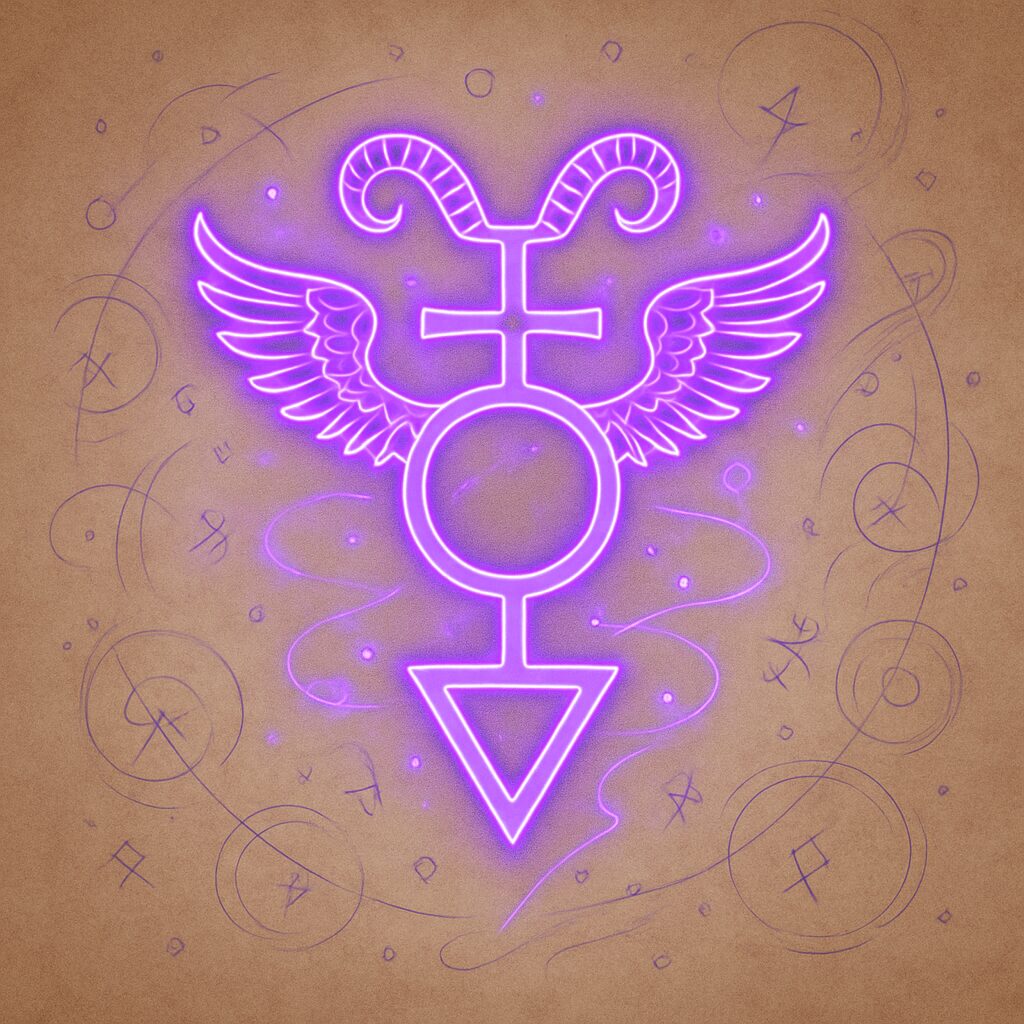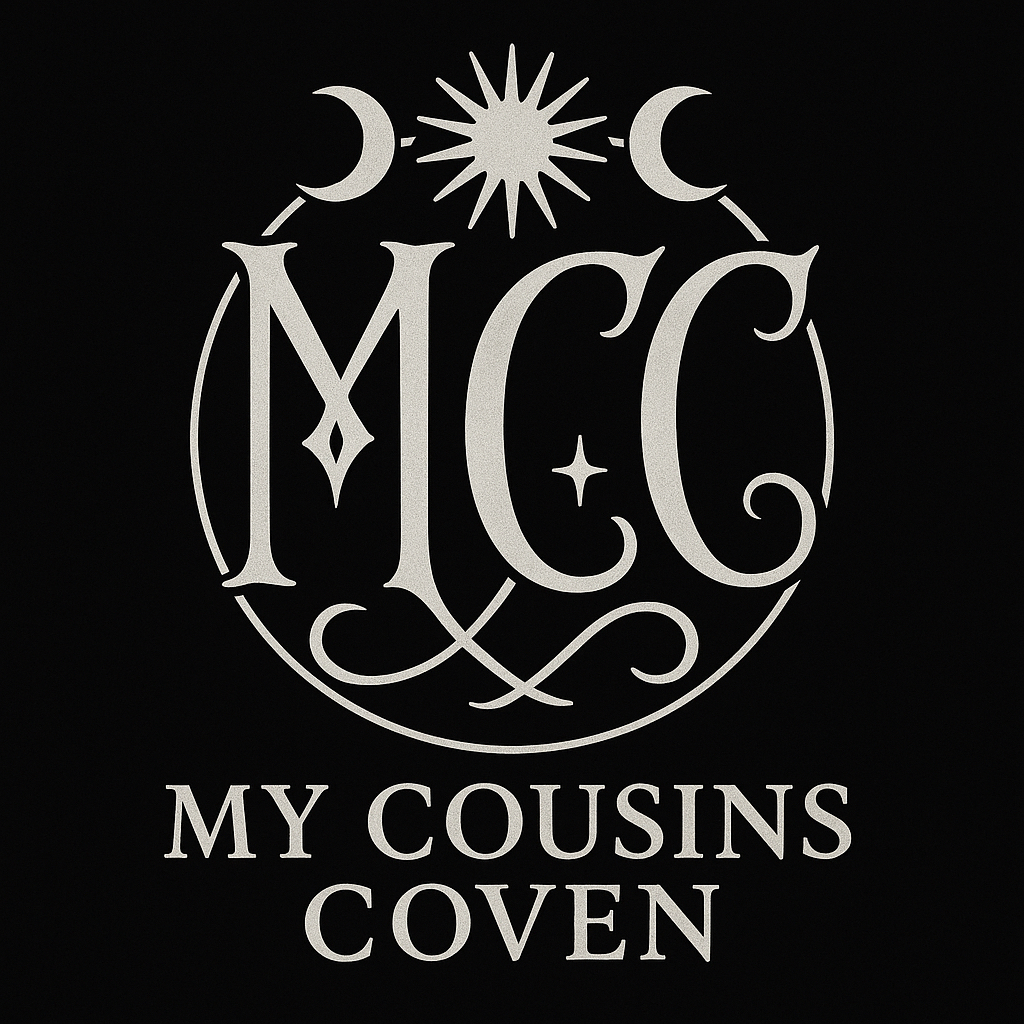A Living Art of Intention, Ritual, and Responsibility
Let intention move through form, and form become art.
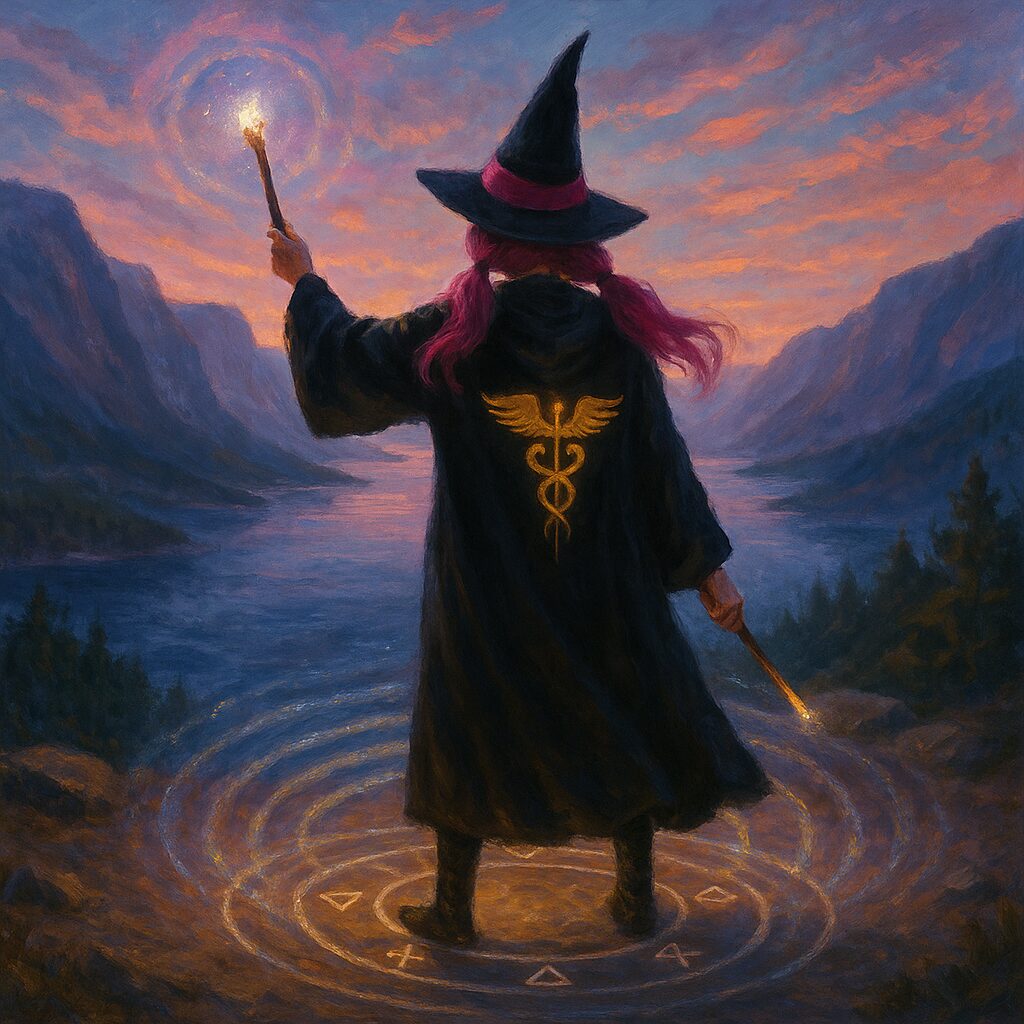
Spellcraft, at its most vital and enduring, is not simply a method of altering reality, but a philosophy of engaging it—deliberately, ethically, and with awe. From the structured rituals of Wicca to the experimental flexibility of chaos magicians, the act of spellcasting rests upon a foundation older than any one tradition: the belief that human will, shaped through symbolic action, can ripple through unseen currents and echo into the fabric of the world.
Some covens, such as My Cousin’s Coven, understand spellcraft as three things at once: an ethical act, a sacred ritual, and an experimental art. These modes are not contradictory. Rather, they form a triangle of magical practice in which intention, openness, study, and ritual combine into a living form. In this view, the spell is not merely a tool—it is a teacher.
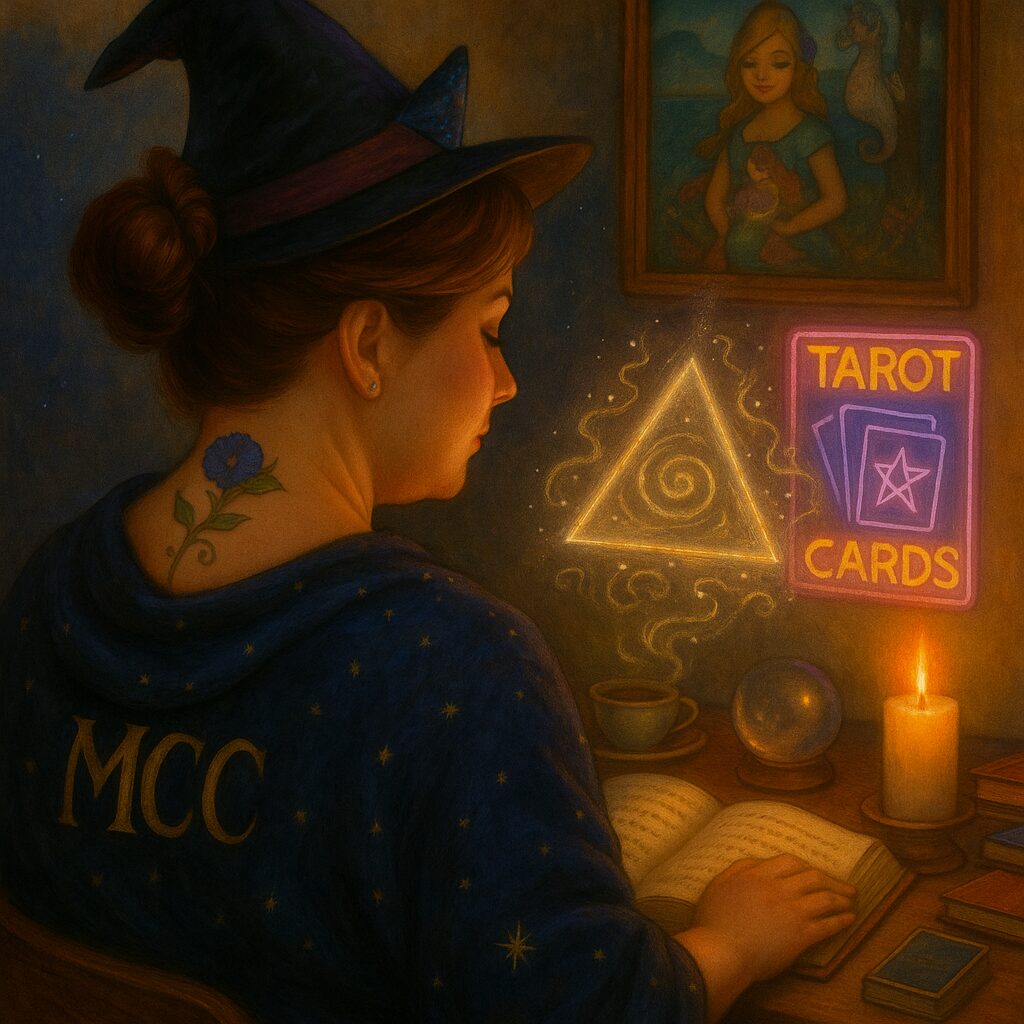
Magic begins with choice. To engage spellcraft is to make a decision: to intervene, to transform, to align. Such action carries ethical weight. The old adage, “An it harm none, do what ye will,” often attributed to the Wiccan Rede, is not simply a rule—it is a riddle. What does harm mean? What does will require? A spell meant to bring about healing may still cause disruption—spiritual realignment is rarely tidy. Intention must be paired with discernment.
The Coven of the Veiled Moon approachs spellwork through the lens of consequence and energetic balance. The witch is responsible not only for what happens, but for what echoes. In this view, energy is not lost—it is redirected. This mirrors older metaphysical concepts found in Hermeticism and Druidic lore alike: every action initiates a pattern of return, not as punishment, but as resonance.
Starhawk, in The Spiral Dance, reminds us that “the law of return is not a system of retribution, but of learning. Magic teaches us how to listen to the world we shape.” Spellcraft is therefore not only action—it is reflection.
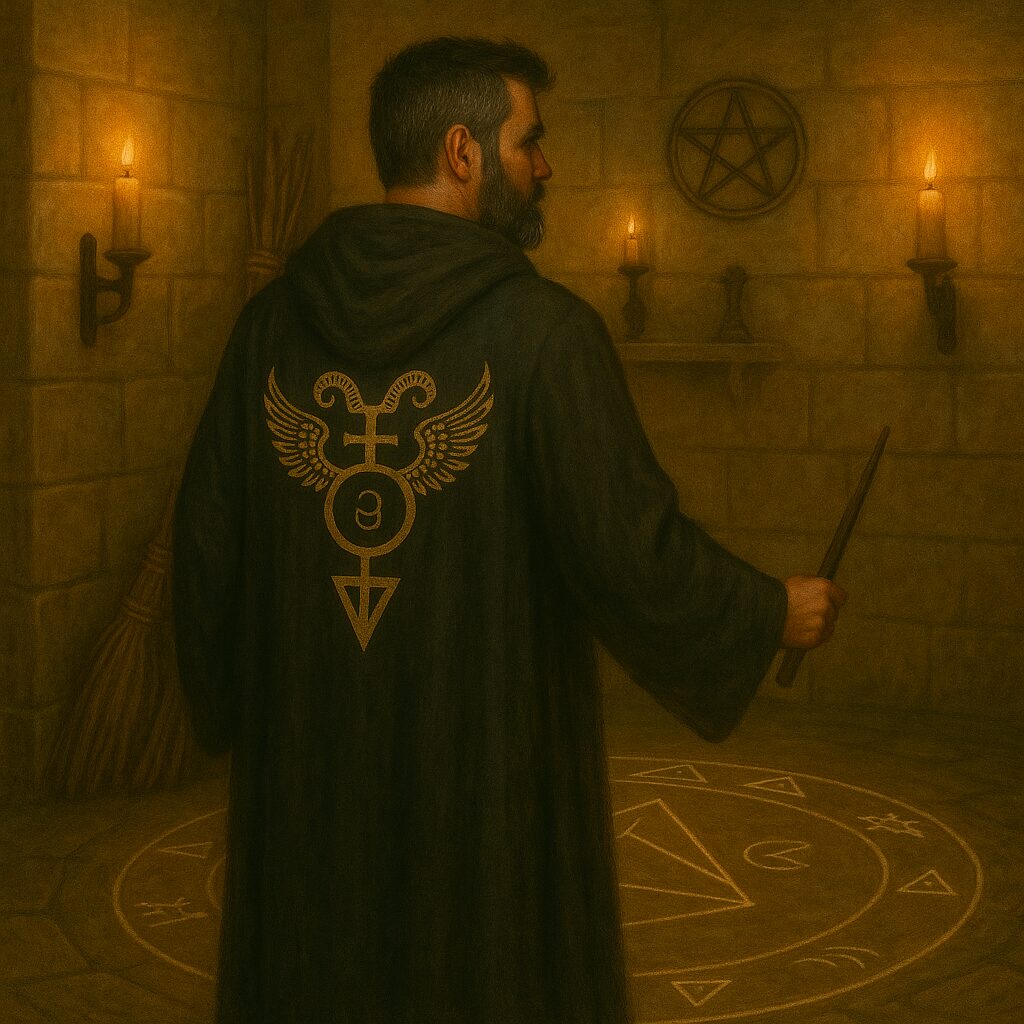
To cast a spell is to step outside of mundane time. Whether it is done with a candle and chant or a full circle of robe-clad practitioners, the act itself is a doorway. Tools matter not because they are necessary, but because they invite intention into form: the wand directs, the athame cuts energetically, the cauldron holds transformation. At My Cousin’s Coven, spellcraft is undertaken with deep ritual care.
When a spell is cast by an individual, it is tested through personal reflection, intuition, and lived experience. Those that show promise are often written into a personal book of shadows or magical journal. When the spell is crafted and tested in community, however, and repeated with reliable results, it may be recorded in the Coven Grimoire—a living document of collective knowledge, treated as both sacred record and practical archive.
Doreen Valiente once wrote that “Ritual is poetry in the world of action.” This principle holds true even in traditions that shun formalism. Discordians may approach spellwork through play and absurdity, but even their rituals carry symbolic resonance. The point is not always solemnity—it is presence.
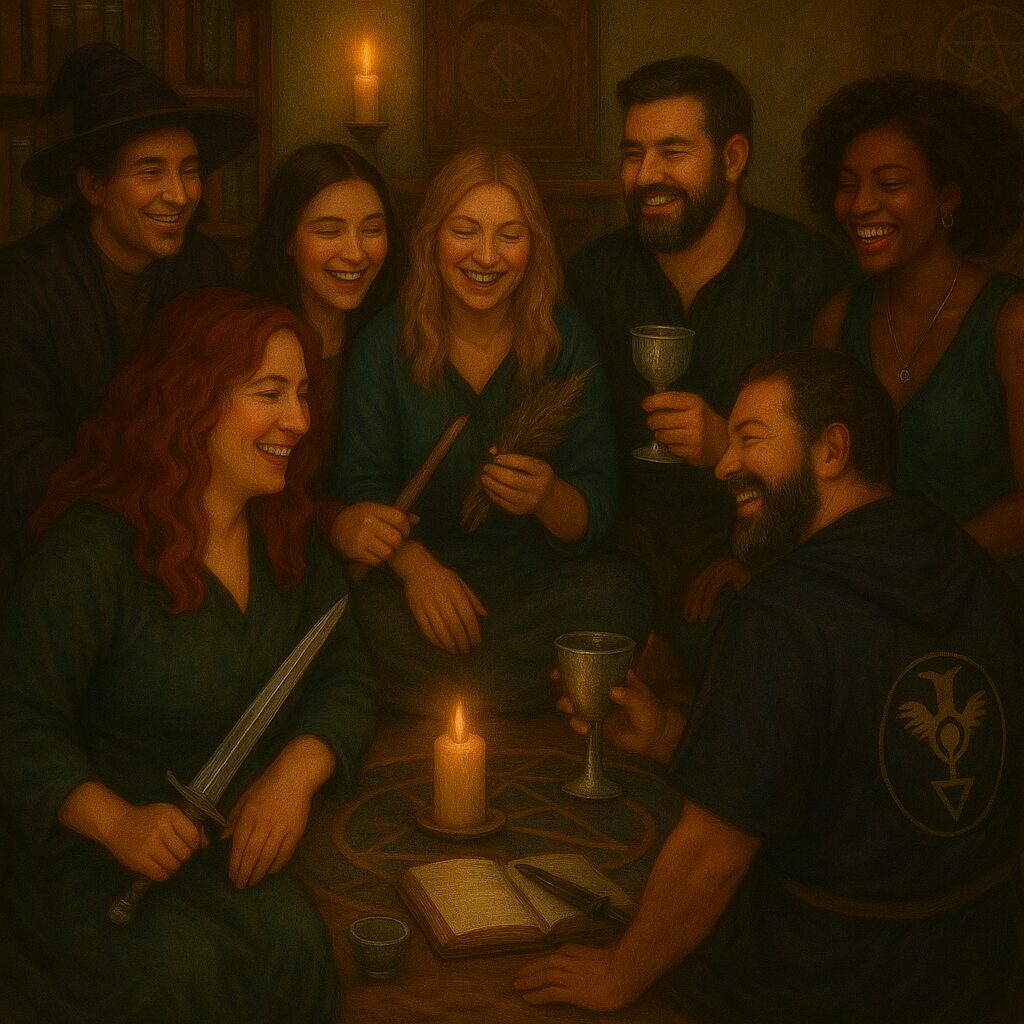
Magic is also art. It lives in creativity, metaphor, and risk. A spell must be coherent in symbolic logic, but it need not be old. Wiccan rituals often draw from folk tradition and ceremonial forms, but modern witches also build new sigils, chant in constructed languages, or craft spells using pop culture correspondences. This creative flexibility is shared by chaos magicians, who treat belief itself as a magical tool—assuming and discarding paradigms as needed to achieve results.
At My Cousin’s Coven, this view is embraced within boundaries of care. Practitioners are encouraged to explore, innovate, and test spells as one might experiment with recipes or musical motifs. But spellcraft is not random. It is a kind of poetic science. The spell that works consistently becomes canon—not as dogma, but as honored pattern. There is no such thing as a guaranteed spell – you have to listen.
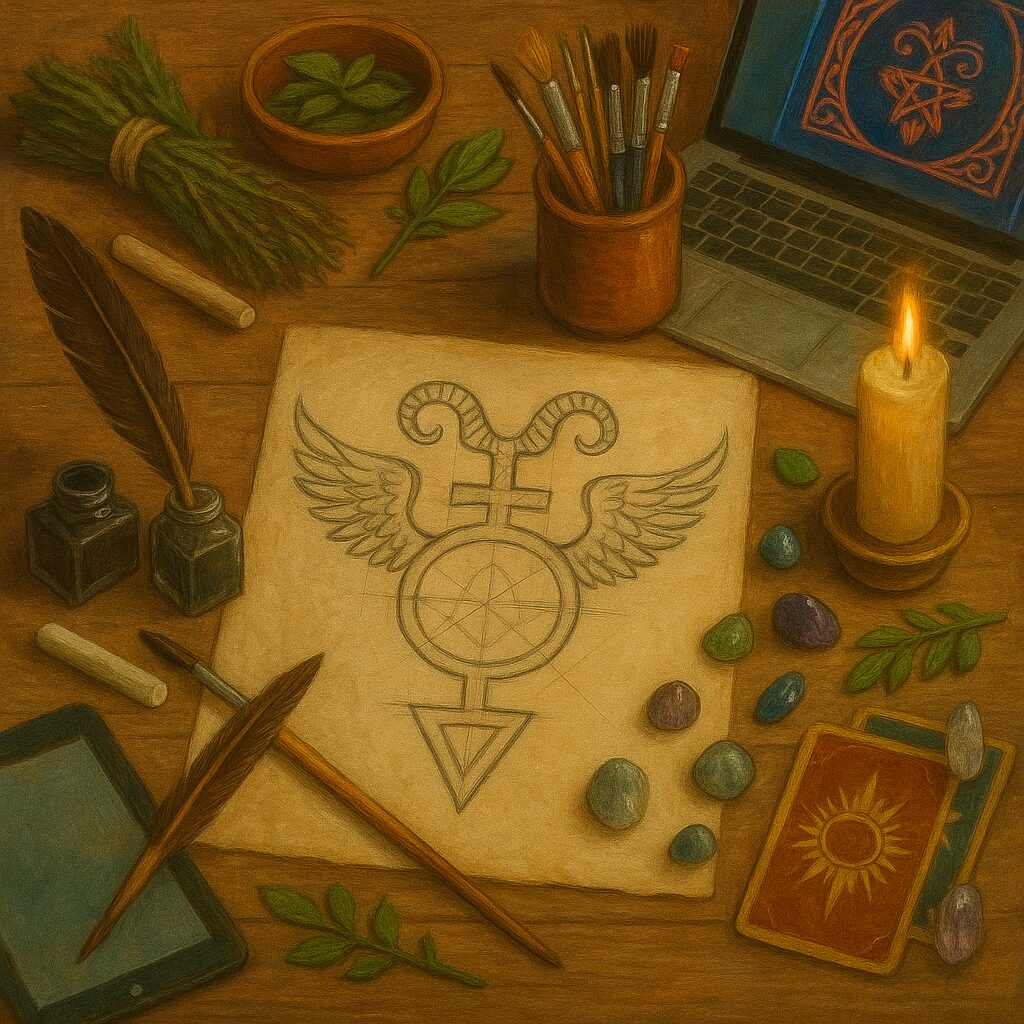
Much debate surrounds spells that affect others without their explicit permission—especially love spells, bindings, and curses. Wiccan perspectives vary widely. Some traditions forbid such workings outright; others approach them with caution and ethical clarity. What is the deeper intent? What are the likely results? What will this teach me? Every spell is a seed. Know the soil before you plant.

While Wicca provides the backbone for many modern magical ethics, it is not the only source. Traditions across the broader magical spectrum approach spellcraft with differing—but often complementary—philosophical frameworks:
- Chaos magicians may reject dogma, yet still keep meticulous magical records, tracking results to refine their craft. Ethics are situational, but personal accountability is central to practice.
- Discordians cloak spellwork in humor and surrealism, yet recognize the power of paradox and intention. Their ethics often revolve around disrupting rigid structures and celebrating creative anarchy.
- Druids draw from the land itself, favoring ritual over direct spellwork, but engaging in seasonal acts of energetic tuning. Their ethics emphasize harmony, reverence for nature, and ancestral cycles of reciprocity.
- Alexandrian Wiccans emphasize structure, hierarchy, and formal initiation, with spellcraft occurring within ritual bounds. Ethical frameworks are taught through lineage, with attention to secrecy, divine polarity, and sacred responsibility.
- Gardnerian Wiccans uphold the Wiccan Rede and the Law of Return, treating spellcraft as a sacred extension of religious duty. Ritual space, consecrated tools, and divine alignment guide ethical spellcasting.
- Eclectic witches draw across traditions to craft personally resonant systems. While diverse in form, their ethics often center on consent, spiritual integrity, intuitive discernment, and respect for cultural roots.
- Reclaiming witches, treat spellwork as both magical and political. Ethics here are rooted in justice, consent, personal sovereignty, and collective liberation. As Starhawk writes, “To choose to cast a spell is to choose to take responsibility for the energy you shape.”
- Modern witchcraft movements—including queer-inclusive, trauma-informed, and neurodivergent-affirming spaces—often view magic as a path of healing, self-determination, and community resilience. Spellcraft is used not just to manifest change, but to reclaim power, address harm, and reimagine possibility.
This list is not exhaustive. Magical traditions are as diverse as the people who practice them—rooted in culture, shaped by history, and adapted through personal experience. While the frameworks outlined here offer insight into common ethical stances, each practitioner, coven, or organization must ultimately arrive at their own philosophical approach to spellcraft.
This process should be undertaken with conscious reflection, a deep respect for the rights and dignity of others, and an awareness of the laws and boundaries that govern both mundane and spiritual communities. Ethical spellwork is not simply about avoiding harm—it is about engaging with the world in a way that is responsible, relational, and just.
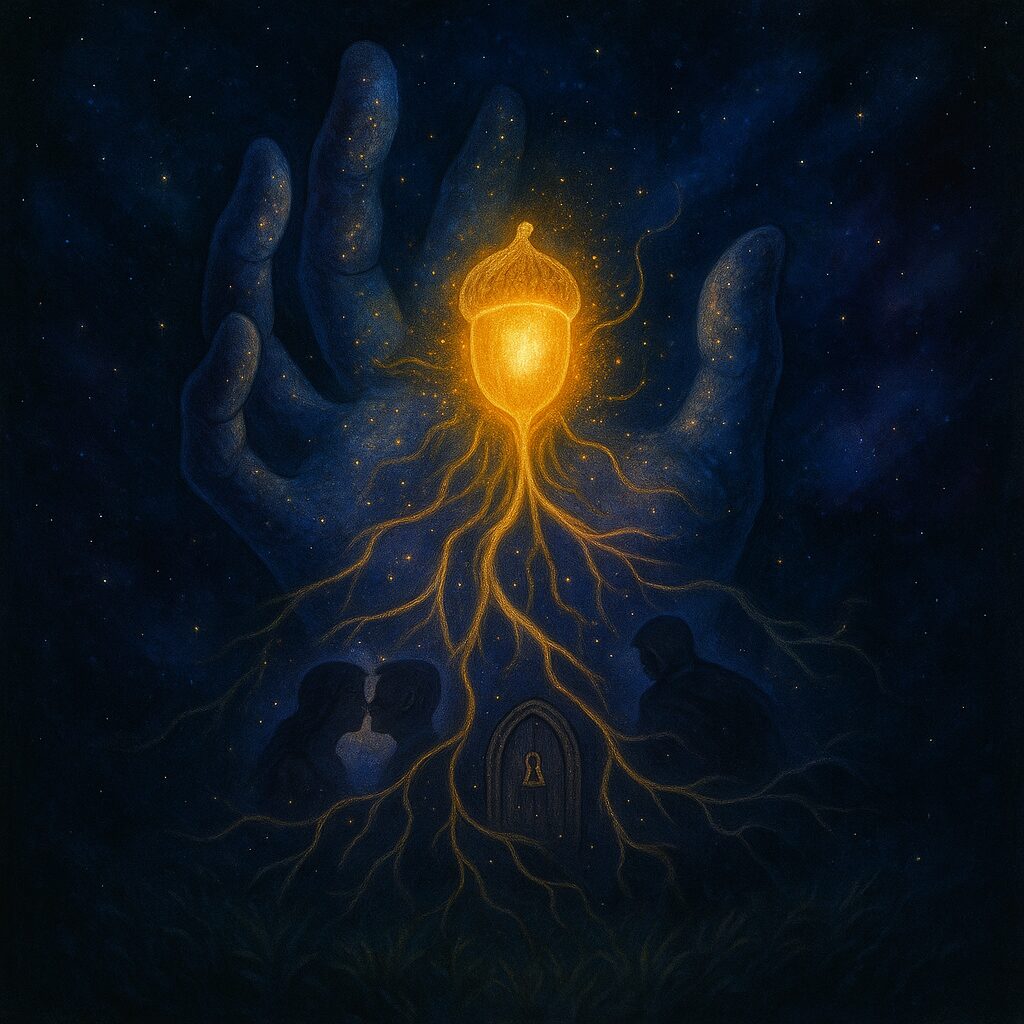
At My Cousin’s Coven, these traditions are seen as part of a shared spiritual ecology. While the coven holds its own ritual structure, its doors remain open to learning across paradigms. Magic, after all, is not a closed circuit—it is a conversation.
Spellcraft is not about control—it is about relationship. Between will and world. Between symbol and reality. Between self and spirit.
To engage in spellcraft is to enter into an ancient contract: one that offers power, but demands awareness. The work is never just about getting what one wants. It is about becoming who one is meant to be—intentionally, artfully, and with care.
